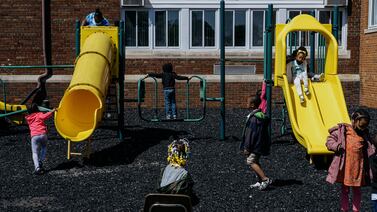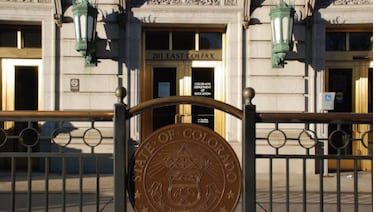As New York City scrambles to reopen school buildings for hundreds of thousands of students this week, a handful of top officials charged with making that happen have left the education department in quick succession.
Three of those officials — Chief Operating Officer Ursulina Ramirez, Deputy Chancellor Karin Goldmark, and senior advisor Alison Hirsh — have announced in the past three weeks their plans to leave. All three have been involved in the city’s efforts to reopen schools, which has been delayed twice in the past month. Following the drumbeat of departures, and a swirl of rumors, the education department’s press secretary took the unusual step Friday of publicly denying that schools Chancellor Richard Carranza also planned to step down.
Goldmark, who has emphasized that her leave will be temporary, and Ramirez have been important players in carrying out the education department’s reopening strategy, focused on a wide portfolio of issues ranging from jump-starting the city’s school bus infrastructure to figuring out how to create enough space for socially distanced classes.
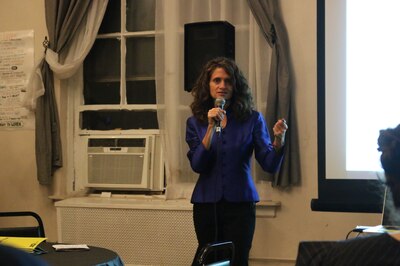
The back-to-back exits come at a precarious moment for the education department, which is scheduled to reopen school buildings to students in elementary, middle, and high schools this week. The reopening effort was further complicated on Sunday when the principals union indicated they have no confidence in the mayor and chancellor’s plans and demanded the state seize control of the city’s schools.
“We need real leadership and certainty in these times,” said Paula White, the executive director of the advocacy group Educators for Excellence in New York and a former education official in New Jersey. “When you have this level of churn at the top it just adds further chaos at this crucial moment.”
Some insiders and observers said broader frustration with the mayor’s mishandling of the reopening process has played a role in the exodus of senior education department officials, three of whom previously worked directly with de Blasio.
An official familiar with the recent slate of departures said de Blasio’s handling of school reopening was a factor. Much of the reopening effort has been run through City Hall, and top education department officials have felt minimized in key decisions. The mayor has also ignored advice from his own advisory group of experts who were asked to offer input on how to reopen schools. When concerns bubble up about issues such as inadequate staffing, which had been a cause of concern for weeks and ultimately contributed a last-minute delay to the school year, the mayor has been dismissive, the official said.
“There are roadblocks in City Hall and it’s difficult to make decisions and just articulate what some of the challenges are without being called bureaucrats,” said the official, who is not authorized to speak publicly and requested anonymity. “People are really demoralized.”
Still, it is not uncommon for New York City officials to be prime candidates for a range of in-demand education jobs, given their experience managing the nation’s largest school system. And the desire to begin lining up other jobs has intensified since de Blasio is term-limited and his successor will be elected next year, with a new mayor likely replacing many senior education officials.
The latest round of departures began in June, with two senior officials leaving to run other school systems. Cheryl Watson-Harris, the department’s second-in-command, became the superintendent of a Georgia school district. She was replaced by Donald Conyers, a nearly 40-year veteran of the department.
Human resources chief Tomás Hana decamped for the top job at a school district in Pennsylvania, and the position was filled on an interim basis by Vicki Bernstein. That role may take outsized importance, as the education department scrambles to hire thousands of teachers in response to a staffing crisis, created in part by an agreement with the city’s teachers union, and which contributed to the delayed start to the school year.
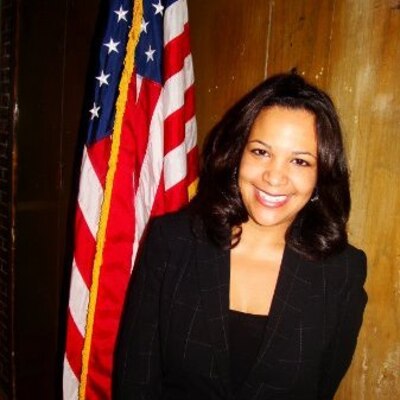
In September, Ramirez, the chief operating officer, left for a nonprofit job that has yet to be announced after working at the education department for almost seven years. Hirsh, who had worked at the education department for only three months after departing City Hall in June, also resigned this month. Ramirez and Hirsh, who both previously worked for de Blasio, will not be replaced, officials said.
And this week, Goldmark, a top education department deputy who previously worked at City Hall for six years, announced she would take a leave of absence to “do everything possible to ensure a Democratic victory” in the presidential election by working on the Biden campaign. An education department spokesperson, Miranda Barbot, said in a statement that Goldmark “has not formally been placed on leave” and did not elaborate on when the leave would begin or whether anyone would take over her role while she’s gone.
“We have incredibly strong leaders with dedicated teams at all levels of the [education department] who are focused on our common goal of a safe and successful school reopening,” Barbot wrote. “We have tremendous confidence in our staff as we begin this school year.”
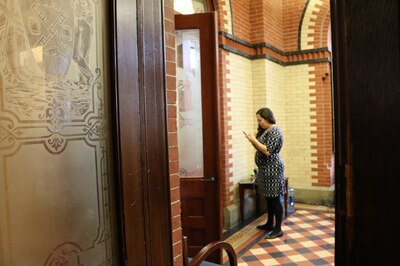
Some said the string of departures was unlikely to cause immediate damage to the city’s reopening efforts, as a bureaucracy as large as the education department has plenty of managers who can fill in.
“We generally have a deep enough pool of people to do what we need to do,” said Mark Cannizarro, head of the union that represents school administrators. “Time will only tell whether or not things could have been done any differently or better with them remaining here.”
Even if it’s unclear whether their departures will have an immediate effect on day-to-day operations, it could create political problems. The mayor has alienated many parents and educators in recent months, despite many experts saying New York City is in a good position to reopen from a public health perspective and offering some in-person learning has potentially significant educational upsides.
The revolving door of senior staff could feed the perception that de Blasio’s plans are insufficient and provide fodder for critics, said Josh Starr, a former New York City schools official and current head of PDK International, an association for educators.
“There is a symbolic effect and you can’t deny that,” Starr said. “It continues to deteriorate the credibility in the overall administration.”



